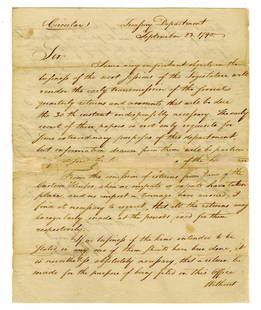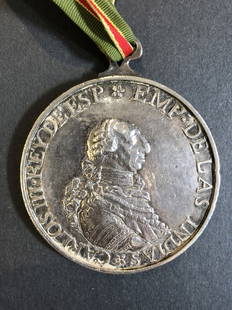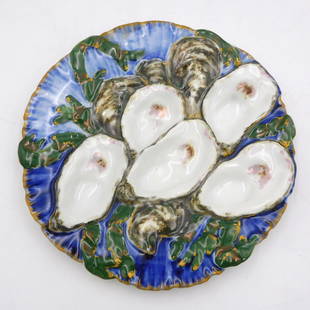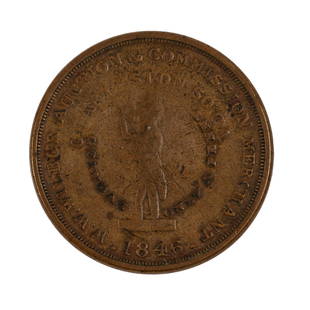
Novelist Edna Ferber 37 Important letters and Editor Harford Powel Craft Her Fiction
Similar Sale History
View More Items in Historical Memorabilia
Related Historical Memorabilia
More Items in Historical Memorabilia
View MoreRecommended Collectibles
View More








Item Details
Description
Novelist Edna Ferber 37 Important letters and Editor Harford Powel Craft Her Fiction
This archive of witty correspondence between novelist Edna Ferber and Collier's Weekly editor Harford Powel Jr. offers a fascinating window into the negotiations between the two over Ferber's short stories. The letters form a delightful read about the process of creating American short stories in the years immediately following World War I.
EDNA FERBER, Archive of letters to Harford Powel Jr., 1919-1921, with unsigned typed carbon copy responses by Powel. 37 letters, 39 pp. General toning; some edge tears, especially to carbon copies.
Contents and Excerpts
- Ferber to Powel, November 5, 1919, New York, NY, Autograph Letter Signed:
"My reason for not having answered your hand-picked letter sooner, dear Mr. Powel, is-or are:
"1. There seem to be no Underwoods in the world; and a pen in my fingers just naturally short-circuits everything.
"2. My trunks are lost, and I've spent the last twenty-four hours crawling around on my hands & knees in the Grand Central Station baggage room.
"3. All the hotels in New York, New Jersey Long Island and all points west are jammed full of folks from Kansas or something. I am going to pitch a tent in Central Park."
- Ferber to Powel, March 5, 1920, New York, NY, Typed Letter Signed:
"I've just finished (may heaven forgive me!) a three-act comedy called $1200 A YEAR, and it's about a school teacher. The theme of it is the under-paid brain worker (a professor of Economics, in the play) and some of it is pretty good and some of it is pretty bad. Mr. Sam H. Harris (Cohan & Harris) will probably put it on. At least, he likes it, and it is now in his office.
"I don't know that you use plays in COLLIER'S but this one happens to be timely, and rather amusing, and, in places, not so amusing as serious. At any rate—unless Mr. Harris objects—would you care to read it?"
- Ferber to Powel, March 18, [1920?], New York, NY, Autograph Letter Initialed:
"Surely you don't think I could be so small, or spiteful, as not to send Collier's short stories in the future simply because you happened not to like the play. Man alive! What queer writers you must have met."
- Ferber to Powel, n.d., New York, NY, Typed Letter Signed:
"I'd like to talk to you about this cheery short story that you want me to dash off some forenoon. I probably shan't be doing many stories in the next six months but I hope to turn out enough to keep the w. from the d. while I'm doing this alleged novel.
"I'm fascinated by this mythical check you talk about so glibly. I don't know whom your cashier sent it to but I trust they're putting it to good use."
- Ferber to Powel, November 17, 1920, New York, NY, Typed Letter Signed:
"It hurts me to do it, dear Harford Powel. But ladies must live, and this lady is trying to write a novel which means that she's m. or l. broke and will be for the next five or six months. That Collier thousand may be a paltry sum but it'll pay my November bills and keep my fair name untarnished if you send it now."
- Powel to Ferber, December 2, 1920, New York, NY, Typed Copy:
"If you feel like writing at least three cheery, moral, Short Stories during 1921, I would like to order them from you at the same rate paid for your fiction in Collier's during 1920, or at an increase in rate, provided business conditions permit at the time."
"They say you can tell all about a person by his laundry. I think you can tell more about him by the cars he has owned during his life."
- Powel to Ferber, December 3, 1920, New York, NY, Typed Copy:
"Strike out the words cheery and moral if you must.
"You must not think that we want to order anything less cheerful than 'The Farmer in the Dell' or less moral that 'Old Lady Mandel'. After all, the best anyone can get from you is a Ferber story, and far be it from us to suggest that you write in anyone else's style, or be more cheery and moral than you have always been. So there."
- Ferber (signing as "Jim Jeffries") to Powel, December 3, 1920, New York, NY, Typed Letter Signed:
"I am afraid that I cannot agree to three short stories under the conditions laid down in your letter of December 2nd. In your first paragraph you state that you would like from me 'three cheery, moral short stories during 1921.' I would as soon sign for three indecent stories dealing with sex; or three immoral stories destructive in tone. You know my short stories sufficiently well, I think, to be familiar with their style and tone. I write about that which interests me. Failing to do that I fail to interest my readers. If a story turns out to be cheery then it's a cheery story. But to sit down with a deliberate Pollyanna attitude—my dear Mr. Powel, it is impossible for me."
"I am sorry that I cannot feel comfortable working under the conditions you describe in your letter. My Collier's career so far has been one of the pleasant experiences in my writing life.
"If you care to have three stories written as best I can about types or situations that seem to have a story value in my opinion, taking my past short-story record as your guide, I shall be happy to do them."
Jim Jeffries (1875-1953) was an American professional boxer and World Heavyweight Champion. In an earlier letter, Powel had expressed his desire that Ferber be a "Mike Gibbons," an American boxer and World Middleweight Champion, who fought every other night, rather than a "Jim Jeffries," "who only fought a half dozen times in his life." By signing as Jeffries, Ferber indicated that she preferred his approach to her craft.
- Ferber to Powel, December 6, 1920, New York, NY, Typed Letter Signed:
"I have struck out the words 'cheery' and 'moral' in your letter of December 2nd, with your permission. That does not mean my short stories for 1921 will be gloomy and immoral."
- Powel to Ferber, December 7, 1920, New York, NY, Typed Copy:
"I am sure there is somebody (just as real as the rest of us) whose career will make good reading in this new age we seem to be living in. There are plenty of heroes and plenty of villains.
"Among new industries there are:
Motion Pictures
Automobiles
Aviation
International Reform Alliances.
"There are Wall Street women who sell securities these days—and sell them to men as well as women."
- Ferber to Powel, January 24, 1921, New York, NY, Typed Letter Initialed:
"I had a talk with Russell Doubleday a while ago and this infernal novel of mine must come out in October or—at the very latest—November. I probably shan't have the thing finished until the end of April. It'll either have to be a weekly magazine (if it serializes, I mean) or a woman's magazine that can eat up enough at a time to swallow it all in about four installments.
"Would you care to see a few thousand words? And if you find these few thousand words good readable words would you like a synopsis of the rest?"
- Powel to Ferber, January 26, 1921, New York, NY, Typed Copy:
"No feller in his senses would refuse an opportunity to read any of your stories; I wish very much you would let me see some of 'The Sisters', if that is the right title of your novel."
Ferber's third novel, The Girls, was published in 1921.
- Ferber to Powel, January 31, 1921, New York, NY, Typed Letter Initialed:
"Don't scold when I tell you that I probably shan't have the first of those stories in until Spring. But after that I'll do 'em one—two—three! Like that. I'm dying to do one about a kid in a garage on his afternoon off...."
- Powel to Ferber, February 1, 1921, New York, NY, Typed Copy:
"As for the kid and the garage, I am dying to know more about them. Since you are dying to write them, can't we both be found dead some time in February?"
- Ferber to Powel, August 6, 1921, Chicago, IL, Typed Letter Signed:
"I'm happier than I've been in years. It worries me."
- Powel to Ferber, August 8, 1921, New York, NY, Typed Copy:
"Happy, are you? You deserve to be."
- Ferber to Powel, September 19, 1921, Chicago, IL, Typed Letter Initialed:
"I don't know whether or not you are using THE AFTERNOON OF A FAUN. If you are will you let me read proof on it. There's a slight omission I want to catch."
- Powel to Ferber, September 21, 1921, New York, NY, Typed Copy:
"I thought you had a letter from me, written in long hand from Newport, congratulating you on 'The Afternoon of a Faun'. By the way, does the title run in quotation marks or not? It is all the same to me.
"I said before, and I still think, that this is a very fine story, and all the more so because of the strength with which you have written it and the sharp insight into the mental workings of a great many young men who work in garages. How well we rich Americans who sport cars are getting to know them."
Ferber's "The Afternoon of a Faun" was published in Collier's Weekly in the November 12, 1921, issue, and as the first story in her short story collection, Gigolo (1922).
- Ferber to Powel, October 11, 1921, Chicago, IL, Typed Letter Initialed:
"I hate to do this, dear Harford Powell; but perhaps you won't mind just running in on dear J.P.M. and telling him that I'm the sole support of your favorite author."
- Powel to Ferber, October 19, 1921, New York, NY, Typed Copy:
"By the way, what arrangements have you made, or are you making, with the newspapers to cover the Disarmament Conference?"
From November 12, 1921, to February 6, 1922, the Washington Naval Conference was held in Washington, D.C. under the auspices of the League of Nations. Representatives of nine nations (the United States, Japan, China, France, Britain, Italy, Belgium, the Netherlands, and Portugal) met to discuss disarmament in the Pacific Ocean and East Asia. Neither Germany (disarmed through the Treaty of Versailles) nor Soviet Russia was invited to the conference. The resulting three treaties and other agreements preserved peace in the 1920s but were not renewed in the 1930s. Ferber had covered the 1920 Republican and Democratic National Conventions for the United Press Association but did not resume her career in journalism.
- Ferber to Powel, November 25, 1921, Chicago, IL, Typed Letter Initialed:
"I'm upset about your letter. Honestly I had hired the taxi to bump into Ray before I ever started the first line of the story. I didn't see any other finish. I have a lot of faith in your judgement—perhaps because you sometimes say you like my stories. I'm willing to listen to reason about this one—or any story of mine. Just now I don't see any other ending. I don't want to break readers' hearts. But I'd rather break theirs than mine. That ending seems to me a natural and inevitable one. So natural that the last paragraph was written before the first was begun.
"I don't know what to do about it. You have told me my last-born is cross-eyed."
- Ferber to Powel, November 26, 1921, Chicago, IL, Typed Letter Initialed:
"Last night, dear Harford Powel, I read for the blind of Chicago. By that I mean that once a year, always, I spend an evening giving readings from my own deathless works, with the blind as audience. They're wonderful. Keen, sensitive, helpful, alert. You can't imagine, unless you've seen them, how responsive and appreciative they are. And you can't fool 'em.
"Well, last night I read (I hope you don't mind) 'Home Girl.' I told them that some one had objected to the ending, and asked their honest opinion about it. When I had finished they were almost unanimous in agreeing that the ending was logical. You should have heard them. 'That's the way it goes,' they said. 'She'll marry again. That's life. He's better off dead. What could he have done?'
"They weren't shocked at the ending. They were sorry that it should be so. But they didn't try to dodge it.
"Well, anyway, old dear, I'm afraid I can't change it."
Ferber's "Home Girl" was published in The Pictorial Review in 1922, and as the fifth story in her short story collection, Gigolo (1922). In 1928, it was made into a silent film starring Miriam Hopkins.
- Powel to Ferber, November 28, 1921, New York, NY, Typed Telegram:
"Lets hold a private disarmament conference at the Algonquin late this week."
Edna Ferber (1885-1968) was born in Michigan into a Jewish family of Hungarian and German descent. She grew up in Ottumwa, Iowa, where her family faced harsh anti-Semitism, and Appleton, Wisconsin. After graduating high school, she took a job with a local newspaper and then the Milwaukee Journal. While recovering from anemia, she began writing short stories and published her first novel in 1911. In 1925, she won the Pulitzer Prize for Fiction for her novel So Big, which was subsequently made into films in 1925, 1932, and 1953. Her next novel, Show Boat (1926) was adapted into a Broadway musical in 1927. In the 1920s, she was a member of the Algonquin Round Table of writers, critics, and actors who met for lunch every day at the Algonquin Hotel in New York. Her 1929 novel Cimarron became the 1931 film that won the Academy Award for Best Picture. Her 1952 novel Giant became the basis of the 1956 movie. Ferber's novels typically featured strong female protagonists and at least one strong secondary character who faced some sort of ethnic, racial, or cultural discrimination. She never married or had children and died of stomach cancer at her home in New York City.
Harford Powel Jr. (1887-1956) was born in Philadelphia and graduated from Harvard University in 1909, where he was president of The Lampoon student publication. He began his career with Vogue magazine in New York. During World War I, he served as a captain in the Army Air Corps. He served as editor of Harper's Bazaar (1917), Collier's Weekly (1919-1922), and The Youth's Companion (1922-1928). In 1932, he became vice president of an advertising firm and led advertising campaigns for Macy's Gimbels, and other New York stores. He served as vice president of the Institute of Public Relations from 1938 to 1941. During World War II, he served as publicity director for the Selective Service System in New York. In addition to short stories, Powel wrote several books throughout his career, including Walter Camp: The Father of American Football (1926), The Virgin Queene (1928), and The Invincible Jew (1930).
All net proceeds from the sale benefit non-profit Westport Book Sale Ventures, which raises funds for the Westport CT Public Library while providing employment and job training for adults with disabilities.
This item comes with a Certificate from John Reznikoff, a premier authenticator for both major 3rd party authentication services, PSA and JSA (James Spence Authentications), as well as numerous auction houses.
WE PROVIDE IN-HOUSE SHIPPING WORLDWIDE.
Buyer's Premium
- 28%
Novelist Edna Ferber 37 Important letters and Editor Harford Powel Craft Her Fiction
Shipping & Pickup Options
Item located in Wilton, CT, usPayment

Auction Curated By






































![E.B. White Self-Deprecating TLS Describing a Front Cover Portrait: E.B. White[North Brooklin, ME], August 7, 1965E.B. White Self-Deprecating TLS Describing a Front Cover PortraitTLSA 1p typed letter signed by American writer Evelyn Brooks White (1899-1985) as "E](https://p1.liveauctioneers.com/6306/327579/176471900_1_x.jpg?height=310&quality=70&version=1714074043)

![12 Enslaved African Americans Divided Amongst Daughters, Important Document: SlaveryMuhlenberg County, KY, December 28, 184912 Enslaved African Americans Divided Amongst Daughters, Important DocumentMDS[SLAVERY.] Charles Morehead, Charles F. Robertson, and J. W. I. Godman, Man](https://p1.liveauctioneers.com/6306/327579/176471777_1_x.jpg?height=310&quality=70&version=1714074043)







![10 Days After His Assassination JFK Signed W. H. letter, Fantastic! Among JFK's Last Acts in White H: John F. Kennedy[Washington, D.C.], December 2, 196310 Days After His Assassination JFK Signed W. H. letter, Fantastic! Among JFK's Last Acts in White House Post Dated Before Dallas TripTLSJOHN F. KENN](https://p1.liveauctioneers.com/6306/327579/176471594_1_x.jpg?height=310&quality=70&version=1714074043)

































![George Washington Signed Discharge: Partly printed discharge document signed by George Washington, as Commander in Chief of the Armies of the United States. Newburgh, [New York], 4 January 1783. 1 page, ## x ## in. Undersigned by Washin](https://p1.liveauctioneers.com/7226/322253/173251475_1_x.jpg?height=310&quality=70&version=1710004847)

